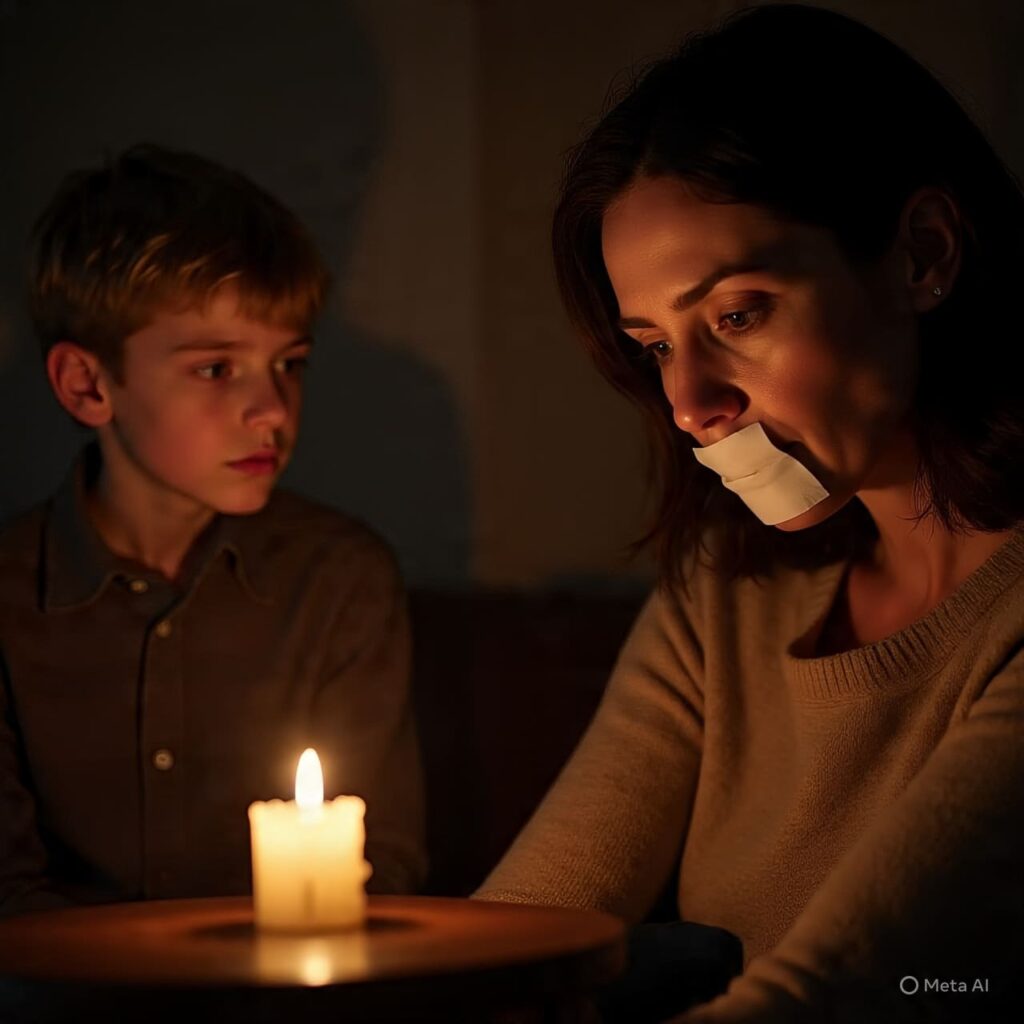
Table of Contents
Every child has questions, but few are as heart-piercing as: “Why doesn’t Daddy come home?” or “Where is Mommy?”
As a working mom juggling career, bills, and taking care of your children, I know how these questions can stop you in your tracks. You want to protect your child’s heart, yet you also know they deserve the truth.
This is where trusted single parenting advice becomes so important.The silence only makes their curiosity louder, and their little hearts need clarity, not confusion.Talking about an absent parent is never easy, but it’s not impossible. With honesty, gentleness, and a little preparation, you can turn this difficult moment into one that builds trust and security.
In this post, I’ll walk you through practical, age-appropriate ways to explain an absent parent to your child. Not as an expert behind a desk, but as someone who’s been in your shoes.
Why the Conversation Matters
One of the most overlooked pieces of single parenting advice is that silence can sometimes cause more harm than the truth. Children are deeply observant. Even when we think they don’t notice, they feel the gap an absent parent leaves behind. Without clear words, that silence often turns into self-blame, “Did I do something wrong?” or “Am I not lovable enough?” These unspoken doubts can weigh heavily on their self-esteem and emotional growth.
That’s why having this conversation matters. It’s not about painting perfect pictures or sharing every detail, but about giving your child a safe, honest answer they can hold onto. When children know the truth in a gentle, age-appropriate way, they feel secure, loved, and reassured that absence doesn’t mean they are any less worthy.
Understanding Your Child’s Perspective

Children process absence differently at each stage of growth. A toddler may simply notice someone isn’t around, while a school-aged child starts asking “why.” Teenagers, on the other hand, often crave deeper explanations and may wrestle with anger, confusion, or sadness.
Practical single parenting advice means meeting your child where they are emotionally and developmentally.. For the little ones, keep your words simple and comforting. For older children, allow space for their emotions and questions, even if you don’t have all the answers. What matters most is that they feel seen, heard, and reassured that their feelings are valid.
By tuning into their perspective, you create conversations that heal instead of leaving wounds.
Tips for Talking About Absent Parents

No script will make these conversations effortless, but with the right approach, you can balance honesty with compassion. These tips will help you navigate the questions in a way that reassures your child while protecting their emotional well-being.
1. Be Honest, But Gentle
Your child deserves the truth, but it should come wrapped in kindness. Share only what’s necessary for their age, avoiding complicated or painful adult details. Honesty builds trust, while gentleness preserves their sense of safety.
2. Reassure Them It’s Not Their Fault
Children often blame themselves for a parent’s absence. Make it clear that the decision or circumstance has nothing to do with them. Remind them of their worth, and reinforce that they are deeply loved and valued.
3. Keep Age-Appropriate Language
Choose words your child can understand. A toddler may only need to hear, “Daddy doesn’t live with us,” while an older child may need a broader explanation. Speaking at their level helps prevent confusion or fear.
4. Encourage Questions
Let your child know it’s okay to be curious. Encourage them to ask and revisit the topic as needed. Listening to their questions without judgment assures them that their feelings are valid and safe to share.
5. Focus on Love & Stability
Shift the spotlight from what’s missing to what’s present. Remind them of the people who love and support them every day. Consistency and affection go a long way in filling the emotional space an absent parent leaves behind.
What to Avoid Saying

When emotions run high, it’s easy to slip into words that do more harm than good. As much as you may feel hurt or frustrated by the absent parent, protecting your child’s heart means choosing your words carefully. Here are some things to avoid:
1. Don’t Demonize the Absent Parent
Speaking negatively may feel like honesty, but it can leave your child conflicted or burdened with adult resentments. Keep the focus on your child’s feelings instead of the absent parent’s shortcomings.
2. Don’t Share Every Adult Detail
Children don’t need to know about court battles, broken promises, or financial struggles. Oversharing overwhelms them and can rob them of their sense of innocence.
3. Don’t Dismiss Their Feelings
Phrases like “Don’t cry” or “It doesn’t matter” can make your child feel unheard. Instead, validate their emotions with reassurance such as, “I understand this makes you sad.”
4. Don’t Make Promises You Can’t Keep
Avoid saying things like “Daddy will come back soon” unless you’re sure. Empty promises can damage trust and create more confusion.
By steering clear of these pitfalls, you preserve your child’s trust while creating space for healthy conversations.
Healthy Coping Strategies for Your Child
One of the most valuable pieces of single parenting advice is to remember that children need more than words to process emotions in healthy ways. It’s important to ensure that they feel loved, safe, and supported even after having an honest conversation.
Your child may continue to feel the weight of an absent parent. They often process emotions in waves, sometimes quietly, other times with tears or questions that resurface weeks later. As a parent, it is your responsibility to guide them through these difficult feelings by offering healthy coping strategies that build resilience and security.
Many experts agree that healthy coping tools are some of the most practical forms of single parenting advice.
1. Creative Outlets
Encourage your child to express their emotions through drawing, journaling, music, or storytelling. These activities provide a safe, non-verbal space to release sadness, anger, or confusion. A child who can express themselves creatively often feels lighter and more understood.
2. Consistent Routines
Another key element of single parenting advice is maintaining structure. Regular bedtime rituals, family dinners, or weekend traditions create stability and comfort when other areas of life may feel uncertain.Daily structure is a powerful comfort. Simple routines — like reading before bed, family dinners, or weekend rituals — help children know what to expect. Stability at home can ease the uncertainty they may feel from the absence.
3. Open Conversations
Keep the door open for questions, no matter how small or repetitive. Sometimes a child may ask the same question again, not because they didn’t hear your answer, but because they need reassurance.
4. Supportive Relationships
Surround your child with people who genuinely care — grandparents, aunties, close friends, or mentors. Loving connections help children understand that family extends beyond biology.
5. Professional Support
If your child shows ongoing sadness, anxiety, or behavioral shifts, consider counseling. Professional guidance equips both you and your child with tools to manage difficult emotions in a safe and empowering way.
With love, structure, and supportive networks, children can learn not just to cope, but to thrive despite the absence of a parent.
When to Seek Professional Help

As strong as we are as parents, there are moments when our love and reassurance may not be enough. Some children carry the weight of absence more heavily, and that’s when seeking professional help becomes important.
Look out for signs such as persistent sadness, withdrawal from activities they once enjoyed, sudden anger outbursts, or changes in sleeping and eating patterns. Younger kids may regress like bedwetting or clinginess, while older children might struggle with school performance or isolating themselves.
If these signs linger, resources like the National Child Traumatic Stress Network can guide you toward professional support. A child therapist or counselor can provide tools to process emotions in a healthy way. Therapy is not a sign of weakness, it’s an act of love and strength. It offers your child a safe space to explore their feelings, while giving you strategies to support them at home.
Sometimes the bravest thing we can do as parents is to admit we need extra support. Professional guidance ensures your child doesn’t just carry the absence but learns how to rise above it with resilience and confidence.
Conclusion
Talking to your child about an absent parent will never be a “one-and-done” conversation. It’s a journey of honesty, patience, and love, repeated in different ways as they grow. What matters most isn’t having the perfect words, but showing up with consistency and compassion.
Remember, your child’s worth isn’t defined by who is missing, but by the love and security they receive from you and the community around them. Your presence, even in your busiest working-mom days, is a powerful anchor.
You may not have chosen this path, but you are building resilience, trust, and unshakable love into your child’s story. And that is more than enough. If you’re single parenting, you may also find this article on Parenting Essentials helpful in raising your child.

